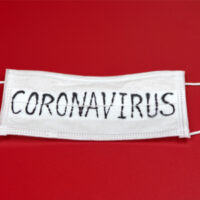Will COVID-19 Slow Hurricane Recovery?

We have written previously about how the novel coronavirus pandemic has impacted storm preparations, including the creation of shelters when a hurricane hits. But an interesting article in the Miami Herald suggests that the pandemic could also slow recovery efforts after the storm departs. This is terrible news, given how slowly our state has dug out from previous hurricanes, like Hurricane Michael.
Delays in Restoring Power
During previous storms, Florida Power & Light (FPL) relied on crews from other states to help restore power. Unfortunately, the pandemic might keep many of these crews away. This means that Floridians will have to wait longer before their power is restored.
When Hurricane Irma struck, FPL needed 10 days to restore power to many customers. And that was with help from crews from 30 states and Canada. About 28,000 workers were deployed to try and restore power to the 4.5 million who lost it. If no crews come from out of state to help due to the COVID-19 pandemic, then Floridians could be in the dark for weeks on end.
Also, crews working will not be able to congregate due to social distancing. FPL has already shrunk the size of its staging sites to facilitate social distancing, which can also slow down recovery efforts. Although FPL intends to use drones and other technology, there is no guarantee that it will work effectively to restore power any quicker.
If a hurricane hits, Floridians should plan on staying weeks at a shelter. Unfortunately, this type of delay actually helps the virus spread faster.
Disaster Relief Agencies Will Work Remotely
Shelters are preparing for increased social distancing, which means they can accept fewer people. Emergency managers have responded by trying to increase the number of shelters. They also intend to provide personal protection equipment to those who arrive and screen for fevers at the door.
However, some relief agencies are also designing ways to offer services remotely. This is necessary to protect the health of volunteers, who might be vulnerable to COVID-19. Information services, for example, could be provided remotely via computer or text message. However, providing remote services depends on there being electricity, so this could be a challenge.
Fewer Adjusters Will Process Claims
Those with hurricane insurance must work with adjusters to get their claims paid. Unfortunately, we can anticipate fewer adjusters to be out and about this hurricane season. As the Miami Herald reports, some insureds are already struggling to get adjusters to visit their properties during the COVID-19 pandemic, which has delayed payment.
After a hurricane or tropical storm, adjusters might be restricted in where they can travel. Safety protocols could also lengthen the amount of time an insured must wait before an adjuster visits to inspect the damage.
Once they arrive, insurance adjusters might play hardball and try to reject claims. Already, the pandemic has put a crimp in company profits, and the recent Black Lives Matter protests have also hit many cities, interrupting their normal business operations. When it comes to paying business interruption claims, many insurers might argue that their insureds have not lost much money at all due to the storm.
Contact Us Today
The Daytona Beach hurricane insurance claim lawyers at Bundza & Rodriguez, P.A. can help with your hurricane insurance claim. Contact us at 386-252-5170 to schedule a free consultation.
Resource:
insurancenewsnet.com/oarticle/more-days-of-darkness-heat-florida-hurricane-recovery-wont-be-fast-in-the-time-of-covid-19

